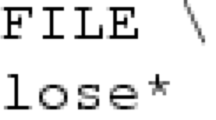Abstract
As a culture, object-orientation encourages programmers to create objects, both short- and long-lived, without concern for cost. Excessive object creation and initialization can cause severe runtime bloat, which degrades significantly application performance and scalability. A frequently-occurring coding pattern that may lead to large volumes of (temporary) objects is the creation of objects that, while allocated per loop iteration, contain values independent of specific iterations. Finding these objects and moving them out of loops requires sophisticated interprocedural analysis, a task that is difficult for traditional dataflow analyses such as loop-invariant code motion to accomplish.
Our work targets data structures that are loop-invariant, and presents a static type and effect system to detect loop-invariant data structures. For each loop, our analysis inspects each logical data structure in order to find those that have disjoint instances per loop iteration and contain loop-invariant data. Instead of automatically hoisting them to improve performance (which is over-conservative), we report hoistability measurements for each disjoint loop data structure detected by our analysis. Eventually these data structures are ranked based on these measurements and are presented to the user to help manual tuning. We have performed a variety of studies on a set of 19 moderate/large-sized Java benchmarks. With the help of hoistability measurements, we found optimization opportunities in most of the programs that we inspected and achieved significant performance improvements in some of them (e.g., 82.1% running time reduction).
Access this chapter
Tax calculation will be finalised at checkout
Purchases are for personal use only
Preview
Unable to display preview. Download preview PDF.
Similar content being viewed by others
References
Mitchell, N.: Personal communication (2009)
Aho, A., Lam, M., Sethi, R., Ullman, J.: Compilers: Principles, Techniques, and Tools. Addison-Wesley (2006)
Naik, M., Aiken, A.: Conditional must not aliasing for static race detection. In: POPL, pp. 327–338 (2007)
Balakrishnan, G., Reps, T.: Recency-Abstraction for Heap-Allocated Storage. In: Yi, K. (ed.) SAS 2006. LNCS, vol. 4134, pp. 221–239. Springer, Heidelberg (2006)
Sridharan, M., Bodik, R.: Refinement-based context-sensitive points-to analysis for Java. In: PLDI, pp. 387–400 (2006)
Xu, G., Arnold, M., Mitchell, N., Rountev, A., Sevitsky, G.: Go with the flow: Profiling copies to find runtime bloat. In: PLDI, pp. 419–430 (2009)
Xu, G., Mitchell, N., Arnold, M., Rountev, A., Schonberg, E., Sevitsky, G.: Finding low-utility data structures. In: PLDI, pp. 174–186 (2010)
Vallée-Rai, R., Gagnon, E., Hendren, L., Lam, P., Pominville, P., Sundaresan, V.: Optimizing Java Bytecode Using the Soot Framework: Is It Feasible? In: Watt, D.A. (ed.) CC 2000. LNCS, vol. 1781, pp. 18–34. Springer, Heidelberg (2000)
Xu, G., Rountev, A.: Detecting inefficiently-used containers to avoid bloat. In: PLDI, pp. 160–173 (2010)
DaCapo bug repository: Bloat report, http://sourceforge.net/tracker/?func=detail&aid=2975679&group_id=172498&atid=861957
Ashes Suite Collection, http://www.sable.mcgill.ca/software
Bacon, D.F., Graham, S.L., Sharp, O.J.: Compiler transformations for high-performance computing. ACM Computing Surveys 26(4), 345–420 (1994)
Wolfe, M.: High performance compilers for parallel computing. Addison-Wesley Publishing Companay (1996)
Allen, R., Kennedy, K.: Optimizing compilers for modern architectures: A dependence-based approach. Morgan Kaufmann Publishers Inc. (2001)
Mitchell, N., Sevitsky, G.: The causes of bloat, the limits of health. In: OOPSLA, pp. 245–260 (2007)
Dufour, B., Ryder, B.G., Sevitsky, G.: A scalable technique for characterizing the usage of temporaries in framework-intensive Java applications. In: FSE, pp. 59–70 (2008)
Shankar, A., Arnold, M., Bodik, R.: JOLT: Lightweight dynamic analysis and removal of object churn. In: OOPSLA, pp. 127–142 (2008)
Shacham, O., Vechev, M., Yahav, E.: Chameleon: Adaptive selection of collections. In: PLDI, pp. 408–418 (2009)
Mitchell, N., Schonberg, E., Sevitsky, G.: Four trends leading to Java runtime bloat. IEEE Software 27(1), 56–63 (2010)
Xu, G., Mitchell, N., Arnold, M., Rountev, A., Sevitsky, G.: Software bloat analysis: Finding, removing, and preventing performance problems in modern large-scale object-oriented applications. In: FoSER, pp. 421–426 (2010)
Bhattacharya, S., Nanda, M.G., Gopinath, K., Gupta, M.: Reuse, Recycle to De-bloat Software. In: Mezini, M. (ed.) ECOOP 2011. LNCS, vol. 6813, pp. 408–432. Springer, Heidelberg (2011)
Dolby, J., Chien, A.: An automatic object inlining optimization and its evaluation. In: PLDI, pp. 345–357 (2000)
Lhoták, O., Hendren, L.: Run-time evaluation of opportunities for object inlining in Java. Concurr. Comput.: Pract. Exper. 17(5-6), 515–537 (2005)
Gheorghioiu, O., Salcianu, A., Rinard, M.: Interprocedural compatibility analysis for static object preallocation. In: POPL, pp. 273–284 (2003)
Sagiv, M., Reps, T., Wilhelm, R.: Parametric shape analysis via 3-valued logic. TOPLAS 24(3), 217–298 (1999)
Chang, B., Rival, X.: Relational inductive shape analysis. In: POPL, pp. 247–260 (2008)
Calcagno, C., Distefano, D., O’Hearn, P., Yang, H.: Compositional shape analysis by means of bi-abduction. In: POPL, pp. 289–300 (2009)
Lev-Ami, T., Immerman, N., Reps, T., Sagiv, M., Srivastava, S., Yorsh, G.: Simulating Reachability Using First-Order Logic with Applications to Verification of Linked Data Structures. In: Nieuwenhuis, R. (ed.) CADE 2005. LNCS (LNAI), vol. 3632, pp. 99–115. Springer, Heidelberg (2005)
McPeak, S., Necula, G.C.: Data Structure Specifications via Local Equality Axioms. In: Etessami, K., Rajamani, S.K. (eds.) CAV 2005. LNCS, vol. 3576, pp. 476–490. Springer, Heidelberg (2005)
Aldrich, J., Kostadinov, V., Chambers, C.: Alias annotations for program understanding. In: OOPSLA, pp. 311–330 (2002)
Grothoff, C., Palsberg, J., Vitek, J.: Encapsulating objects with confined types. TOPLAS 29(6), 32 (2007)
Clarke, D., Drossopoulou, S.: Ownership, encapsulation and the disjointness of type and effect. In: OOPSLA, pp. 292–310 (2002)
Boyapati, C., Liskov, B., Shrira, L.: Ownership types for object encapsulation. In: POPL, pp. 213–223 (2003)
Heine, D.L., Lam, M.S.: A practical flow-sensitive and context-sensitive C and C++ memory leak detector. In: PLDI, pp. 168–181 (2003)
Banerjee, A., Naumann, D.A.: Ownership confinement ensures representation independence for object-oriented programs. J. ACM 52(6), 894–960 (2005)
Author information
Authors and Affiliations
Editor information
Editors and Affiliations
Rights and permissions
Copyright information
© 2012 Springer-Verlag Berlin Heidelberg
About this paper
Cite this paper
Xu, G., Yan, D., Rountev, A. (2012). Static Detection of Loop-Invariant Data Structures. In: Noble, J. (eds) ECOOP 2012 – Object-Oriented Programming. ECOOP 2012. Lecture Notes in Computer Science, vol 7313. Springer, Berlin, Heidelberg. https://doi.org/10.1007/978-3-642-31057-7_32
Download citation
DOI: https://doi.org/10.1007/978-3-642-31057-7_32
Publisher Name: Springer, Berlin, Heidelberg
Print ISBN: 978-3-642-31056-0
Online ISBN: 978-3-642-31057-7
eBook Packages: Computer ScienceComputer Science (R0)




